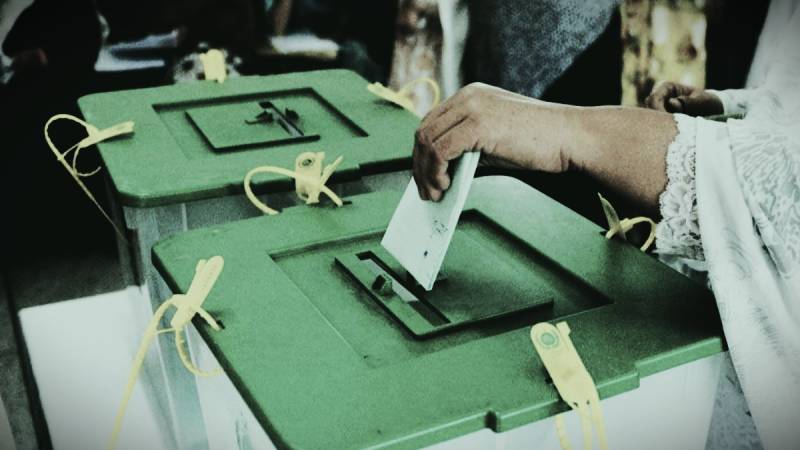
Leading politicians, lawmakers, lawyers, and journalists have agreed on a “Code of Democratic Politics and Free and Fair Elections”.
The code was proposed by Citizens for Democracy (CD), which has urged all political parties to sign it.
Political leaders and civil society activists shared widespread concerns regarding the autocratic manipulations, ‘political engineering’ and massive rigging of electoral processes and elections in the past and its possible recurrence in future elections; a political culture of abusive rhetoric, intolerance, enmity, exclusionary approaches, and falsification of informed discourse to suit political expediency at the cost of a healthy public debate on policy issues.
They also pointed to the intervention of and manipulation by any state institution in the electoral processes and influencing a fair outcome of elections in favour of or against any political party; use of money, parochial, ethnic, and sectarian ideologies or prejudices, and hate speech during the election campaigns and use of unfair means on the day of elections, including buying of votes, tempering with ballot papers/ballot boxes and all kinds of rigging and manipulation of vote counting and actual results;
They said that not letting women, minorities, and other marginalised groups and deprived regions freely exercise their right to franchise, undemocratic practices of not acknowledging and respecting the mandate(s) of the people and subverting or bulldozing a healthy functioning of the Parliament while respecting pluralism and adopting inclusiveness.
Not respecting and accommodating the difference of opinion and pushing the Treasury and the Opposition benches beyond the limits of legitimate parliamentary conventions of tolerance and accommodation. Moreover, it pushes adversaries to the wall, implicating them in false cases, and denies parliamentarians the right to represent the electorates of their constituencies and respective parties.
They urged all political parties to adhere to the CDP.
“Learning from past mistakes and wrongdoings, they agreed to observe the following Code of Democratic Politics:
- Respect fundamental human, civil, social, and economic rights of people and equal rights of women and minorities as enshrined in the UN Declarations, Covenants, and the 1973 Constitution.
- Uphold the supremacy of the 1973 Constitution, sovereignty of people represented by Parliament, cooperative federalism as enshrined in the 18th Amendment, and devolution of power to the grassroots level to empower people.
- Ensure the rights of all citizens regardless of any distinction while preserving the Doctrine of the Sovereignty of Parliament and Separation of Powers among various institutions of the State within the confines of their constitutional scope and limits.
- Respect Freedom of Expression and differences of opinion in a civilized manner without indulging in acrimonious and abusive polemics and personal/sectarian/parochial/sexist vilification.
- An unfettered right to free franchise is a most crucial fundamental right of all citizens, who are the sovereign in deciding their destiny and the fate of the state. Most importantly, a credible, free, and fair election, without the exclusion of any legitimate political party, is the prerequisite of a legitimate government and the sovereignty of the Parliament.
- Reject any interference in politics and electoral processes, and their truthful outcomes, by any state institution or an agency, and influence of money and coercion, be it private or otherwise.
- Ensure a fair, civilized, tolerant, informed, and democratic discourse in politics and elections.
- Discourage illegitimate and foul means to influence elections for the sake of and sharing of power or self-aggrandizement.
- Adopt peaceful, civilised, and legitimate means in contesting elections while respecting the mandate(s) of the people and following democratic norms and parliamentary conventions.
- Devote respective programs and manifestos for the larger benefit of the masses, oppressed and deprived sections of the population in particular, with a focus on eradicating poverty and inequality and preparing our youth to meet the challenges of a globalized multi-polar world while benefiting from the scientific and technological revolution.
- Refrain from and reject political victimization, arbitrary arrests and kidnapping of political activists.
- Promote peace, amity, and cooperation in the country, region, and the world on the principles of peaceful Co-existence.
Those who have endorsed the code so far include Pakistan Qaumi Watan Party President Aftab Sherpao, Pakistan Peoples Party (PPP) Senator Raza Rabbani, Pakistan Muslim League Quaid (PML-Q) Senator Mushahid Hussain Syed, former Advisor to PM Malik Mohammed Ahmed, PPP's Barrister Aitzas Ahsan, PPP, Jamaat-i-Islami General Secretary Liaquat Baloch, former MNA and National Democratic Movement (NDM) President Mohsin Dawar, former senator Afraisyab Khattak, Pakistan Tehreek-e-Insaf's (PTI) Hamid Khan, National Party (NP) President Dr Maalick, Awami Workers Party (AWP) President Akhtar Hussain, PPPP's General Secretary Farhatullah Babar, Farooq Tariq, HKM President Senator Manzoor Gichki, Mazdoor Kissan Party (MKP) Secretary General Taimur Rehman, Awami National Party (ANP) Khadim Hussain, NP Punjab President Malik Ayub, former Supreme Court Bar Association president Ahsan Bhon, Pakistan Bar Council (PBC) Chairperson Hassan Raza Pasha, Peoples Liberation Front (PLF) Abid Saqi, Lahore High Court Bar Associations's (LHCBA) Sabahat Rizvi, Pakistan Federal Union of Journalists (PFUJ) Afzal Butt, Council of Pakistan Newspaper Editors (CPNE) General Secretary Aamir, CPNE's Kazim Khan, Geo President Azhar Abbas, South Asia Free Media Association (Safma) Secretary General Imtiaz Alam, The Friday Times (TFT) Najam Sethi, Dawn's Zahid Hussain, Jang Editor Sohail Warraich, Senior Editor Hussain Naqi, Editor Rashid Rehman, Express Group Editor Ayaz Khan, Analyst Mazhar Abbas, Analyst Air Marshal Shehzad Chaudhary, PFUJ's Nasir Zaidi, Editor Jabbar Khattak, MPA Jugnu Mohsin, TFT Editor Raza Rumi, Tehreek Niswan Sheema Kirmani, Women's Action Forum (WAF) Khawar Mumtaz, Aurat March's Farzana Bari, Artist Saleema Hashmi.
Civil society activists who signed it include SAP's Mohammed Tehseen, Dr Bashir, Amjad, Minhas, Peter Jacob, Economist Dr Akmal Hussain, Dr Shahid Kardar, LUMS' Dr Waseem, Dr Nadia Pervez, and over one hundred human rights activists and associates of Citizens for Democracy.

